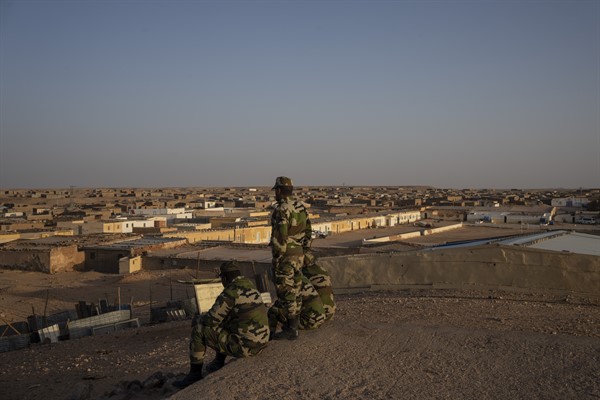After two years of diplomatic deadlock, U.N. Secretary-General Antonio Guterres has appointed a new envoy for Western Sahara, a territory disputed between Morocco and the pro-independence Polisario Front, which represents the ethnic Sahrawi population of the territory. The recent designation of seasoned Italian-Swedish diplomat Staffan de Mistura marks a much-delayed and critical step forward in a standoff that, if left untreated, risks spreading instability elsewhere in the region.
The temperature has been rising of late in this often-overlooked conflict. In November 2020, fighting flared up between Morocco and the Polisario Front. A month later, President Donald Trump threw fuel on the fire and jeopardized the traditional U.S. role as a neutral broker between the parties by recognizing Moroccan sovereignty over the territory in exchange for Morocco normalizing its relations with Israel. Since then, Rabat and the Polisario have hardened their respective positions. De Mistura should seize the momentum behind his appointment to offer fresh ideas and a series of confidence-building measures to guide the two sides back to the negotiating table.
When Spain ended its colonial control over Western Sahara in 1975, Morocco and Mauritania divided up the territory in the face of stiff resistance from the Polisario, which had fought for the territory’s independence. (Mauritania later withdrew, leaving its part of Western Sahara to Rabat.) Thousands of Sahrawis fled the ensuing war and took shelter in camps over the border in Algeria. The U.N. brokered a cease-fire in 1991, which left most of the territory in Moroccan hands. The U.N. also created and monitored a buffer zone to separate the two sides and set up a mission, known as MINURSO, to implement a peace plan that centered on holding an independence referendum. However, disagreements between the two sides prevented the ballot from taking place, and the conflict froze in place for almost 30 years.

